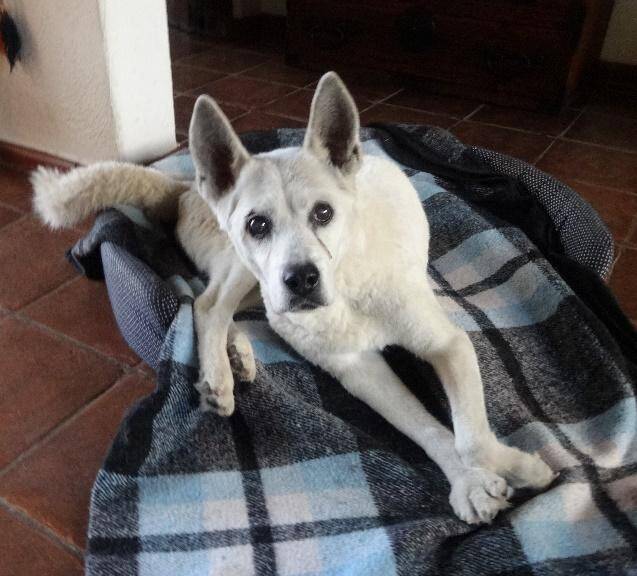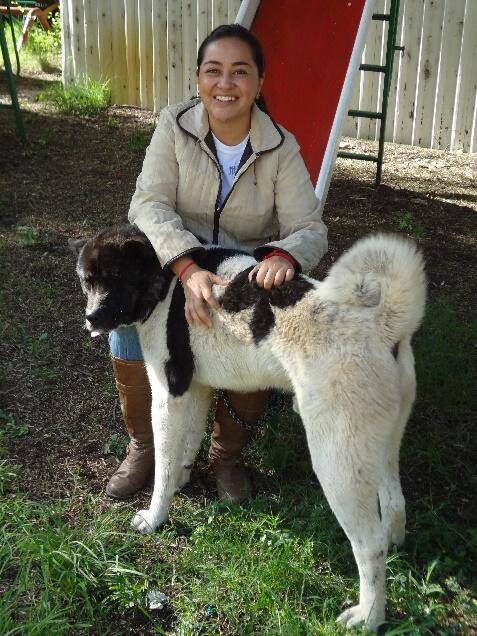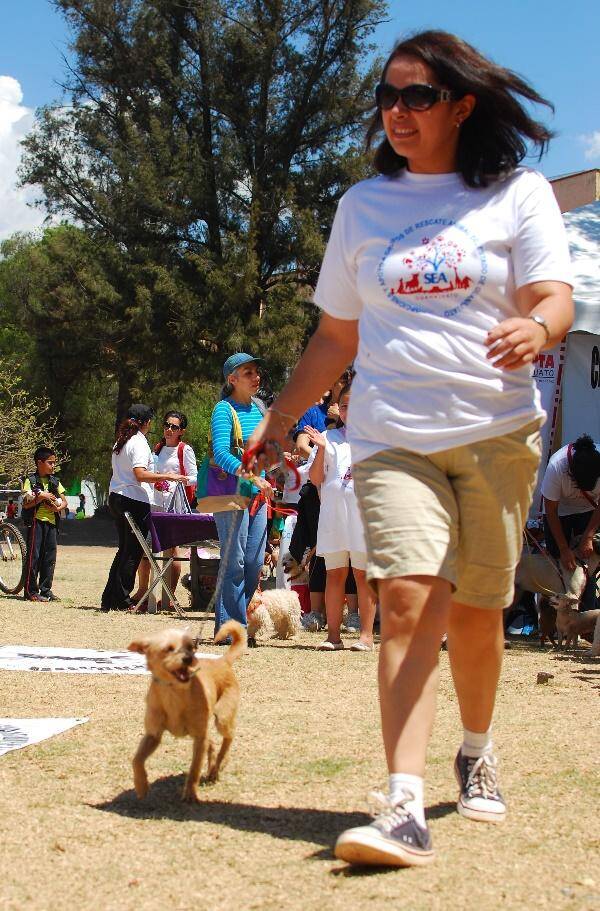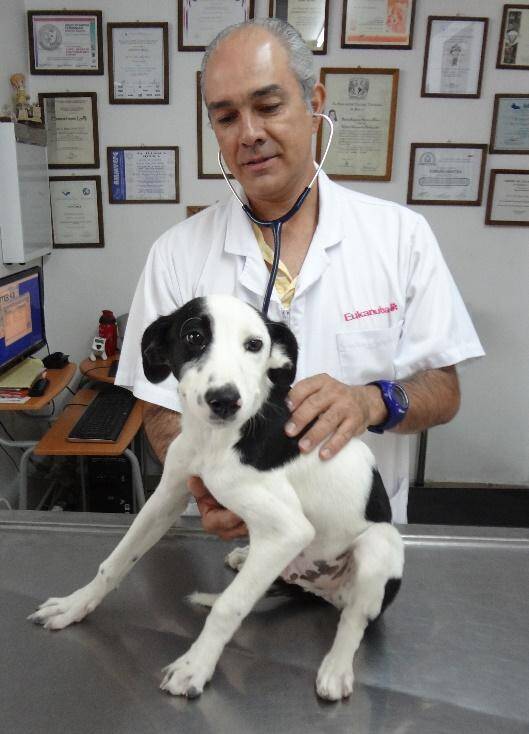On April 13 Kathya Amaya and Julia Salido discussed dogs’ basic needs during their interview on Channel 8’s morning program “Despierta Guanajuato.” You can watch the interview by clicking here.
For readers who don’t know Spanish or don’t want to take the time to watch the interview, here’s a summary of the information that Kathya and Julia covered in their conversation with Luis Camacho, the program’s moderator.
Basic needs
Like having a child, having a dog entails responsibility. Dogs have basic needs that we humans owe them if we decide to include them in our lives.
Water. Access to fresh, clean water always. The water in your dog’s bowl should be changed twice a day.

Healthful food. Recommended for adult dogs: high-quality, high-protein balanced dog food. Adult dogs should be fed twice a day. Puppies should be fed balanced puppy food three or four times a day. At four months of age, they can begin eating twice a day.
A diet of tortillas and scraps from the table is harmful to dogs. And bones—especially cooked bones—will splinter when chewed and can kill a dog.
Certain foods that humans eat are harmful or even poisonous to dogs. These include chocolate, grapes, raisins, avocados, onions, garlic, macadamia nuts, walnuts, corn on the cob, and candy; also apple seeds, apricot pits, and cherry pits.
A place to sleep. Your dog should have at least one dog bed that can be washed and is kept in a safe place, preferably close to where you sleep and away from excessive heat or cold. Dogs are social animals and prefer to sleep close to their human family members.

A clean and comfortable living area. The area where your dog spends time outdoors needs to be kept clean. Its feces should be removed each day. A dog should never be left outdoors or on a roof without protection from the sun, rain, or cold.
Companionship. Like people, dogs are social animals. They need company—either of other dogs or of humans, preferably both. Isolating a dog can cause it to develop behavioral problems such as aggression or destructiveness. A dog should never be tied up or chained for long periods of time. In fact, keeping a dog chained or tied up most of the time is illegal in the State of Guanajuato and can lead to a fine for the owner.

Exercise and training. Dogs need plenty of exercise, and they need to be patiently trained to interact appropriately with other dogs and with people. They should be trained to walk while on a leash, but they also need to be able to play with other dogs in a safe environment. Dogs need safe toys–ones that they cannot swallow and are not made of toxic materials.

Older dogs, although less active, should still exercise to maintain their muscle mass and keep their joints healthy.
Annual vaccinations and a checkup. Vaccinations against rabies, parvovirus, and distemper (moquillo). Parvovirus and distemper are endemic in Guanajuato, and they can be fatal if not treated promptly. Treatment is expensive and not always successful. It’s much better to prevent these viruses with annual vaccinations. When getting your dog vaccinated, have your veterinarian check its general health as well.

Grooming. Dogs need to be bathed from time to time, and dogs with curly fur that can become tangled or matted need to have their fur brushed frequently and clipped occasionally to prevent sores that can become infected.
Don’t forget
A leash for walking in public. State law and city regulations require that dogs be leashed when in public.
An identification tag. Even if your dog is walked on a leash, he should wear a collar and an identification tag with your contact information on it in case he accidentally goes outdoors without supervision and gets lost.
Bags for your dog’s excrement. When walking with your dog, be responsible: carry several bags with you, pick up your dog’s poop, and dispose of it properly.
Although having a dog is a major responsibility, a dog who is well cared for, trained, and treated with respect and affection will give its human family years of unqualified devotion, loyalty, and enjoyment.
